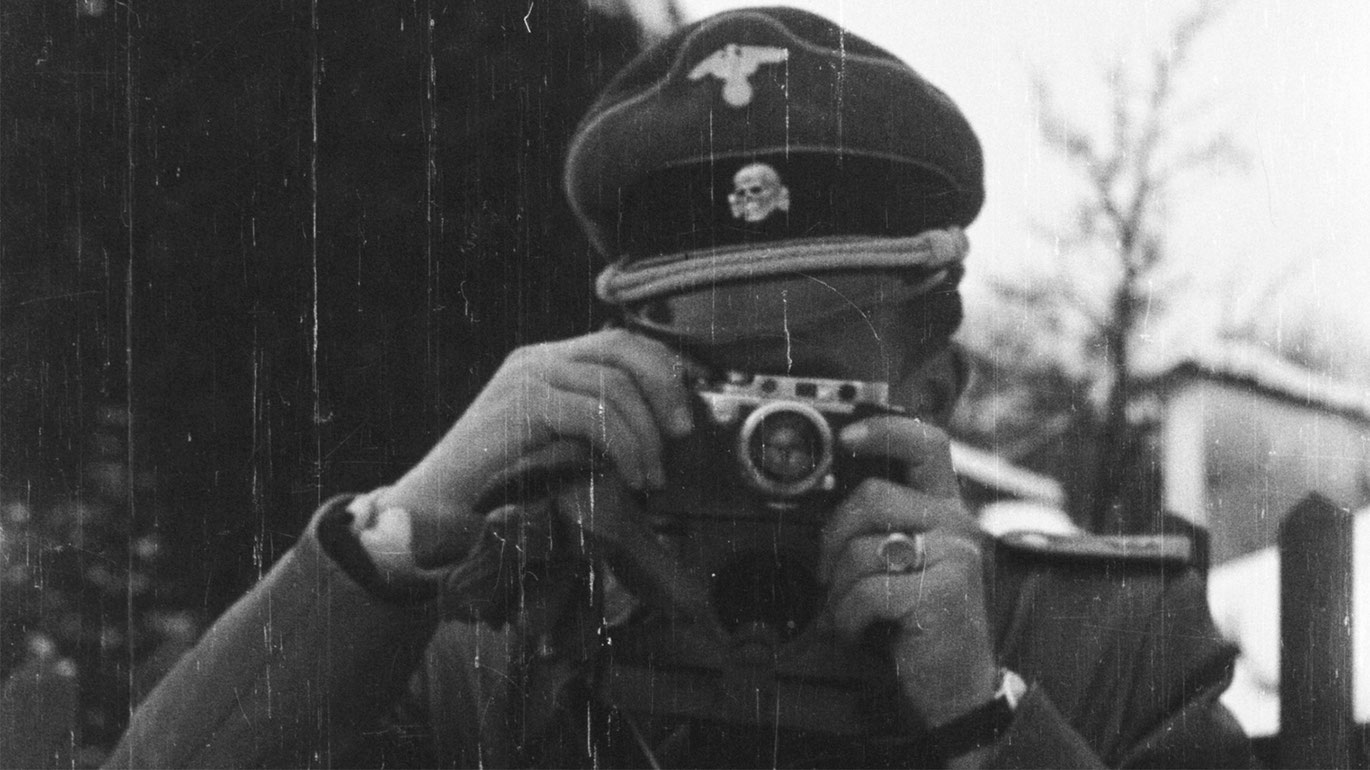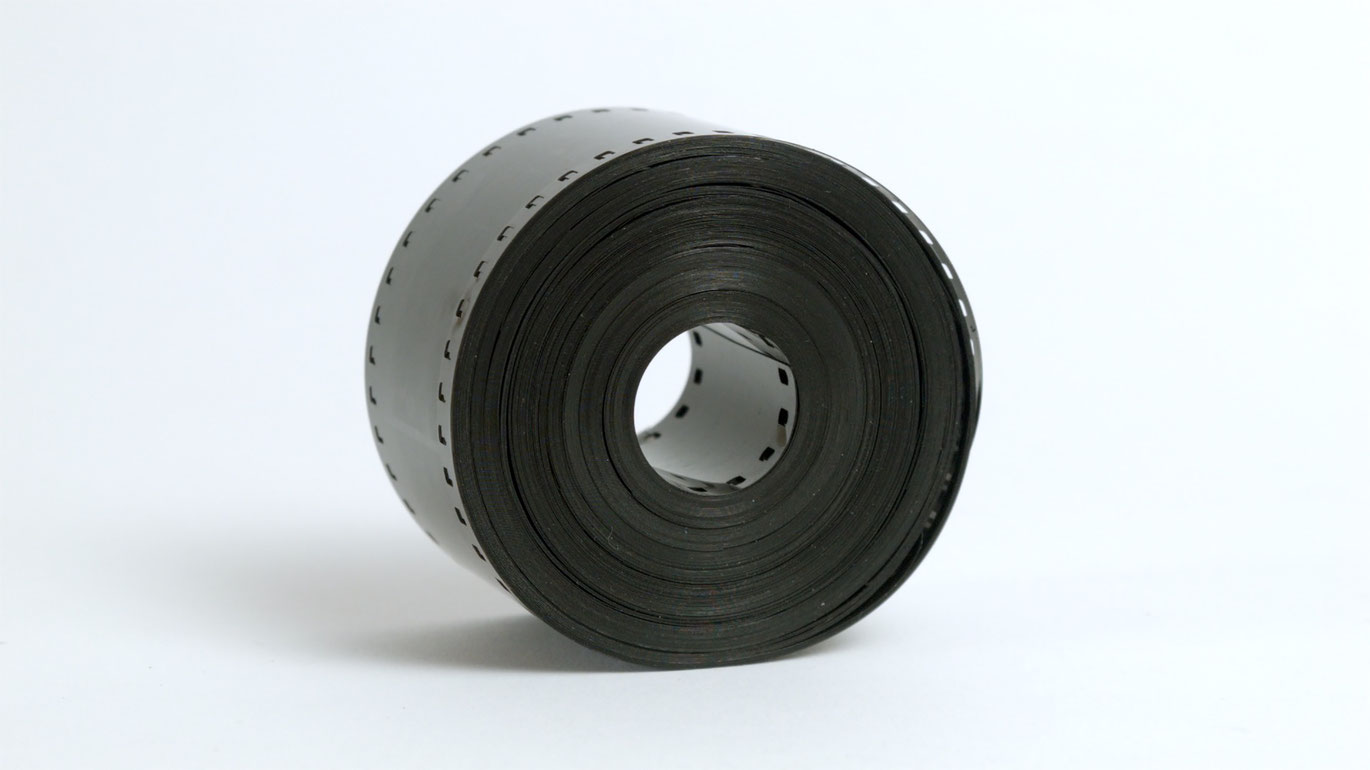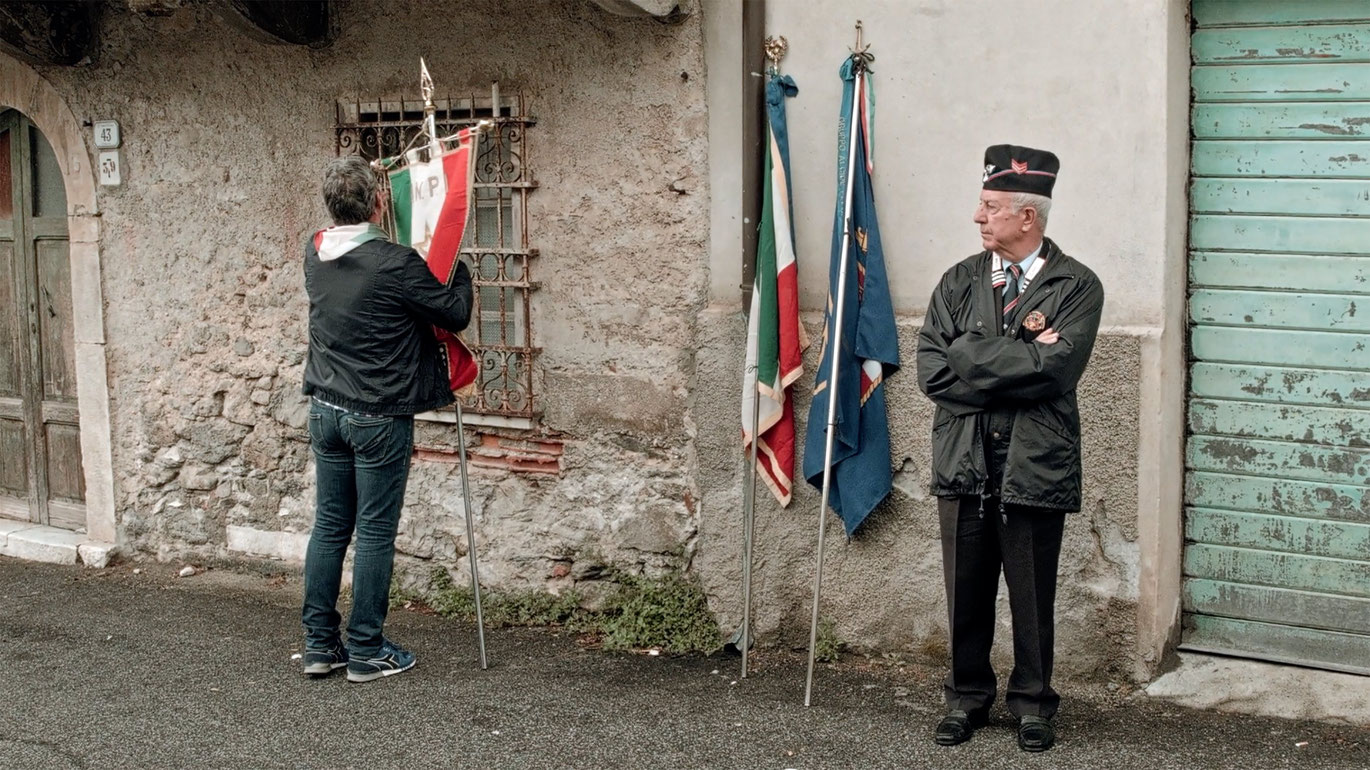An Iron Box
In 1985, the Austrian politician Friedhelm Frischenschlager caused a scandal by welcoming at the airport in Vienna, the former SS officer and war criminal Walter Reder who was returning after serving a long prison sentence in Italy. Reder was the key figure in connection with a series of massacres on civilians carried out by German troops on their retreat through northern Italy in 1944. Among the members of Reder´s SS-formation was Olaf Jürgenssen, who served as a medic. On the side, he also took numerous photographs, of which a few prints were stored in an iron box. Jürgenssen´s grandson, Nils Olger, found the negatives in his grandfather´s estate. The filmmaker used this family inheritance as an occasion for a journey on the tracks of his grandfather. The journey is likewise one through the last years of World War II, from Hungary to Italy, and finally back to Austria, where Jürgenssen was ultimately de-nazified, married, and began a successful career as a doctor. The photographic negatives serve Olger as a sign and starting point. He compares landscapes and buildings from back then and today, and he engages in conversation with people who are still able to remember the events. The photographs in the iron box contain a suggestion of distance, which the observer, born at a later point in time, attempts to breach through research and contemplation. In a video interview, which Olger carried out with his grandfather shortly before the elder man´s death, Jürgenssen appears defensive and claims to have had nothing to do with the Germans´ crimes. In his calm film, which offers an example, in the best sense, of remembrance politics, Olger draws a pointed conclusion: "What will I remember about my grandfather? Negatives." (Bert Rebhandl)
Translation: Lisa Rosenblatt)
Eine eiserne Kassette
2018
Austria, Germany
102 min



